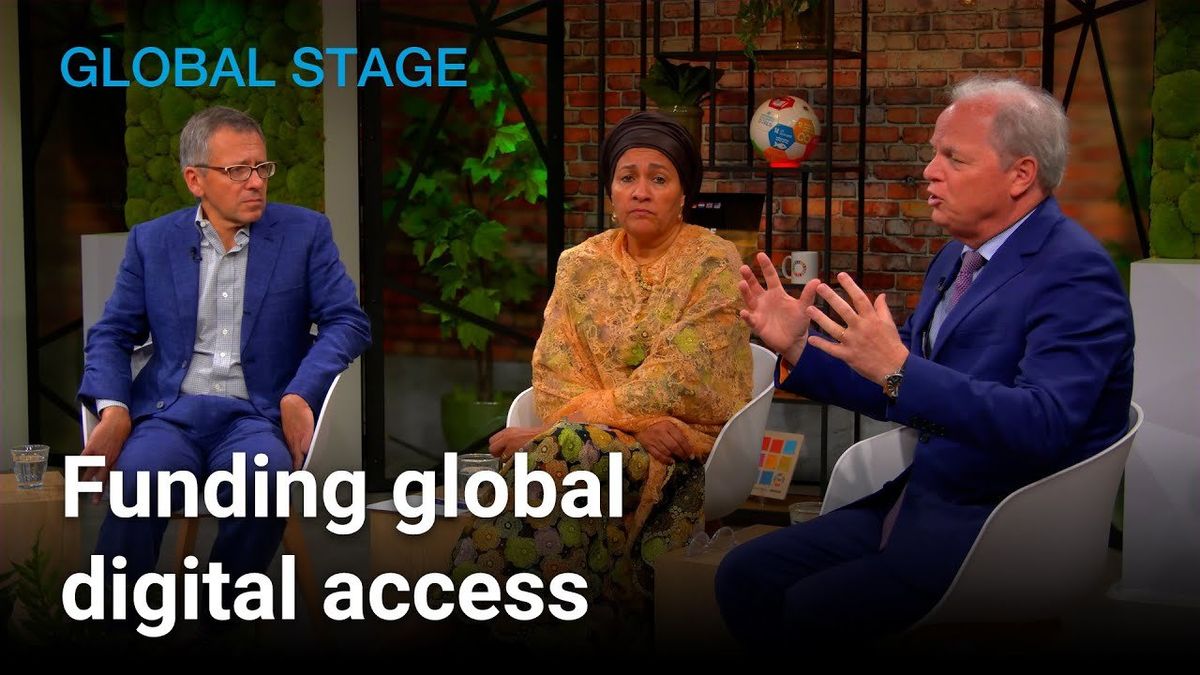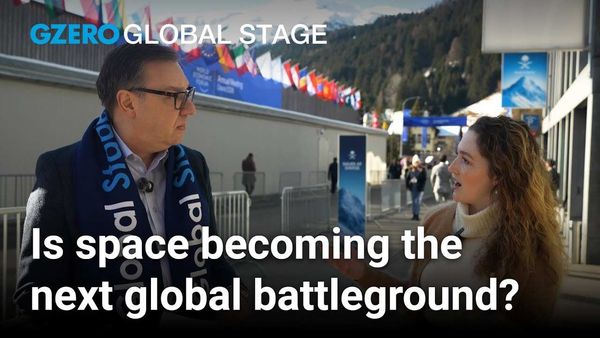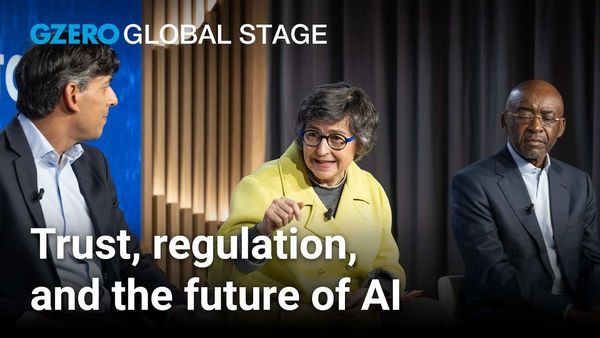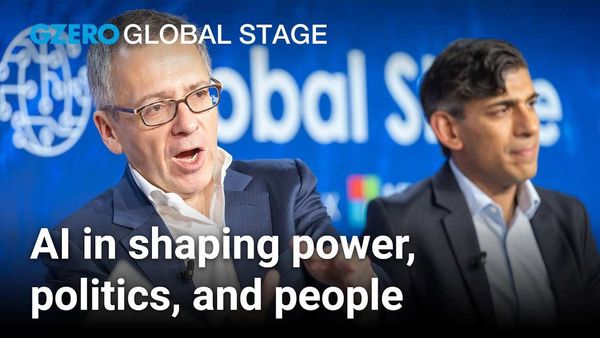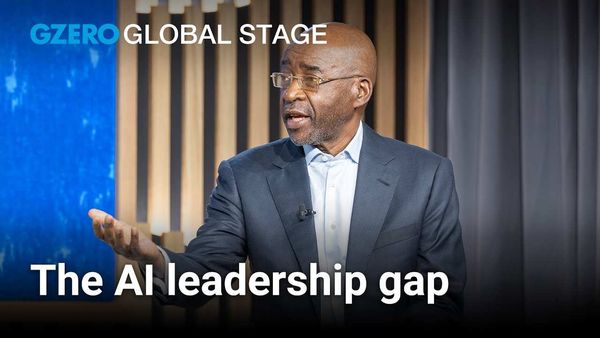To connect the next two billion people to the internet, funding is crucial – and not the small type. The same goes for creating a global warning system that uses satellite data to preempt global disasters. To accomplish these enterprise projects, the UN requires a massive financial war chest.
Few understand the scale better than Axel Van Trotsenburg, the World Bank's Senior Managing Director. But with private-sector partnerships, it can be done, he noted during a Global Stage livestream event at UN headquarters in New York on September 22, on the sidelines of the UN General Assembly.
"In Africa, the African Union has taken decisions on the digitalization," he said, "I think we need to scale this massively, and I think it is doable and you see in countries like Kenya that have very sophisticated payment systems, sometimes better than in OECD countries."
The discussion was moderated by Nicholas Thompson of The Atlantic. It was held by GZERO Media in collaboration with the United Nations, the Complex Risk Analytics Fund, and the Early Warnings for All initiative.


